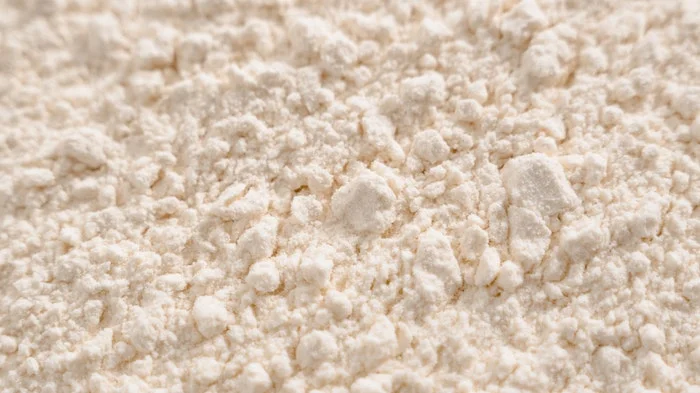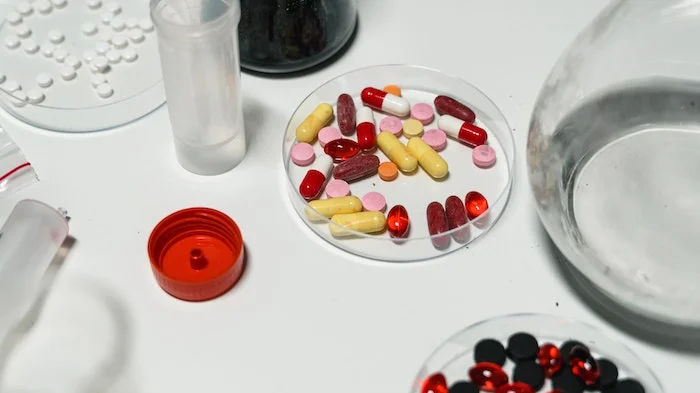- Home
- Addiction Guides
- K-Hole and the Effects of Ketamine
K-Hole and the Effects of Ketamine
Young adults often use Ketamine Hydrochloride as a ‘party drug’; however can often become a significant addiction.
Ketamine, a general anaesthetic usually used on animals and humans, has a sedative, disassociating effect. [1]
What is Ketamine?

Ketamine Hydrochloride, Special K, Kit-Kat or just ‘K’ belongs to the drug group dissociative anaesthetics. Other drugs in this category include nitrous oxide (balloons) and Phencyclidine (PCP).
Ketamine was created in 1962 by Calvin Stevens at the company now known as Pfizer as an alternative to phencyclidine (PCP). It was first used in humans in 1965 and was introduced into clinical practice by 1970.
Ketamine is often considered unique, as the substance offers three different effects that other drugs can’t produce simultaneously. These are:
- Hypnotic (sleep-producing)
- analgesic (pain-relieving)
- amnesic (short-term memory loss)
It is manufactured as a powder or liquid, a substance that can be snorted or injected. The effects can involve distorted perceptions of light and sound, producing an out-of-body experience with hallucinations.
Unlike other substances, Ketamine is used in the medical field as an alternative to morphine or to assist with mental health treatment.
However, illegal Ketamine can be mixed with other substances or stolen from veterinary clinics, making it difficult to know what it is mixed with.
What is a K-Hole?

In high doses, Ketamine addiction can produce euphoric effects. However, many reports enter a ‘k-hole’. The side effects of taking Ketamine can become more intense with added doses. This is what many consider entering a ‘k-hole’.
Those who have experienced k-holes have reported feeling like they’re rising above their body or melting into their surroundings. This can be enjoyable for some; however, many describe it as frightening and compare it to a near-death experience.
Most people end up in a k-hole on accident after ingesting too much. It can be a terrifying and disturbing experience with overwhelming feelings of helplessness. This can induce feelings like:
- Panic
- Anxiety
- Hallucinations
- Changes in sensory perceptions like sight, sounds and time
- Disorientation
- Confusion
Usually snorted, the effects of Ketamine can take around five to fifteen minutes to take effect and last about one hour. When mixed with other drugs, these effects can intensify.
Many take Ketamine in nightclubs or parties, meaning they aren’t fully aware of how much they are ingesting. This can increase the likelihood of falling into a k-hole, especially if you are newer to the drug. [3]
How Do I Know Someone is in a K-Hole?
Ending up in a k-hole can be an intense experience; many can become unresponsive as they are very insular with their hallucinations. This can make it difficult to know if someone is in distress.
Look out for a few signs if you think someone is overdosing on Ketamine. Knowing these signs is essential so you know if help is required.
Signs of a Ketamine overdose include:
- Loss of consciousness
- Hallucinations
- Vomiting
- Slow or diminished breathing
- High blood pressure
If you see these symptoms, you must call the emergency services and tell them they took Ketamine.
Many choose not to do this for fear of repercussions. However, overdose can often lead to death.
The Dangerous Effects of Ketamine

Due to the sedative effects of Ketamine, those entering the k-hole may not notice they are experiencing hazardous physical effects.
Numbness and the inability to speak can make it difficult for you or your loved one to express that they need help.
Physical effects of taking high doses of ketamine can include:
- Increased heart rate
- Elevated blood pressure
- Loss of coordination
- Nausea, vomiting
- Short-term memory loss
If you or your loved one falls into a k-hole, you may find it challenging to come out of the dissociative state, meaning that once the drug wears off, you continue to feel disconnected from the world.
Some have reported that ongoing psychosis can continue long after taking the drug. Using Ketamine alongside other drugs can not only produce long-term mental disorders but can be fatal.
“I felt like I was floating. I couldn’t feel my body. It was wack,” writes a Reddit user in a post titled “The dreaded K-hole.” [4]
Long-Term Effects of Ketamine Abuse
Ketamine use has been on the rise in recent years; however, many begin using the drug without the necessary information and risk devastating health issues that can be irreversible.
Science has shown that long-term ketamine abuse contributes to the decrease of grey matter in the brain and controls movement, emotions and memory. This degeneration is similar to Alzheimer’s and dementia.
Long-term ketamine abusers also showed increased white matter in the brain, which is caused by reduced blood flow to the brain.
This can be detrimental to your health and cognitive function. This is more probable in poly-drug users. [5]
Other long-term effects of substantial Ketamine use can include the following:
- Dependence
- Seizures
- Bladder problems
- Heart problems
- Nasal damage
- Cognitive dysfunction
“I see a lot of different colours, textures, I analyse the hell out of sounds, I’ve talked to God, and I was even flying,” writes a Reddit user on a thread about k-holes during infusions. [6]
Mixing Ketamine with Other Drugs

As Ketamine can be used recreationally, many people will combine the drug with other substances to increase or ‘control’ the effects.
However, this can be incredibly dangerous, as many are unaware that combining other substances with Ketamine can increase the risk of adverse side effects.
- Ketamine and Alcohol
Despite general understanding, alcohol is a depressant, like Ketamine. Also known as ‘downers’, depressant substances decelerate the central nervous system, increasing the likelihood of slowed breathing, decreased heart function and even death.
- Ketamine and Stimulants
Popular stimulants used alongside Ketamine are Cocaine, MDMA or Amphetamines. Many will combine these drugs to control the adverse side effects, but this can increase your chance of ending up in a ‘K-Hole’.
Stimulants increase heart rate and blood pressure, combined with depressants like Ketamine, which can increase the risk of heart attacks or strokes.
- Ketamine and Opiates
Opiates work by hijacking the opiate receptors in the brain and depressing the nervous system. Similar things happen during Ketamine use, meaning a mixture of these two can create respiratory issues, which can be fatal.
Evidence has shown that most overdoses involving Ketamine involve poly-drug use, where the affected has used one or more substances alongside Ketamine. [7]
Ketamine and Ongoing Mental Health Issues

As previously mentioned, Ketamine is often used in human and animal medical fields. There are many ways that Ketamine has added to the betterment of society, but the increasing use of recreational Ketamine has darkened its reputation.
Legal Ketamine use can include:
- Pre and post-operative pain management – Opioids are usually recommended before and after operations. Nevertheless, studies have shown that Ketamine slows down opiate tolerance and increases pain sensitivity.
- Traumatic brain injuries – Ketamine has a role in neuroprotection by regulating the respiratory system and depressing the central nervous system. This makes it ideal for those having ongoing resuscitation after excessive brain trauma.
- Paediatric care – Ketamine has shown to be helpful for children undergoing surgery, including cleft palates, tonsillectomies and burns to the skin.
- Chronic pain management – Used mainly to treat neuropathic pain disorders and cancer patients, Ketamine has been used to treat ongoing pain sensitivity. However, this remains controversial, as studies have shown contradicting results.
- Mental health treatment – Ketamine has proven highly effective in patients suffering from depression, bipolar disorder and suicidal behaviour under monitored situations. [8]
The use of Ketamine in these circumstances is regularly monitored with ongoing interventions to ensure the patient does not become dependent. When Ketamine is mixed with other drugs or cut with destructive chemicals, we see addictions and fatalities form.
Getting Help for Ketamine Addiction

It was reported that over 71% of visits to the emergency departments in 2011 that involved ketamine overdose included the use of alcohol. [7]
Help is available for those who feel they have an addiction to Ketamine. You don’t have to hit rock bottom before seeking help.
Ketamine can have devastating long-term effects on the body if used illegally; therefore, reach out to your local GP to be directed to drug and alcohol services in your area.
References
[1] https://www.dea.gov/sites/default/files/2020-06/Ketamine-2020.pdf
[2] bdp.org.uk
[3] highalert.org.nz
[4]https://www.reddit.com/r/ketamine/comments/adpbg0/the_dreaded_khole/
[5] https://doi.org/10.3389/fnana.2022.795231
[6]https://www.reddit.com/r/ketamine/comments/hvcw2t/k_hole_on_iv_infusions/




